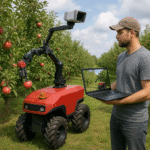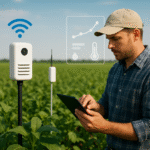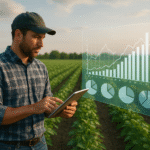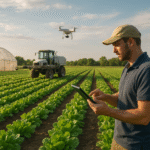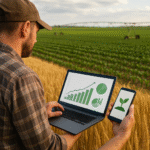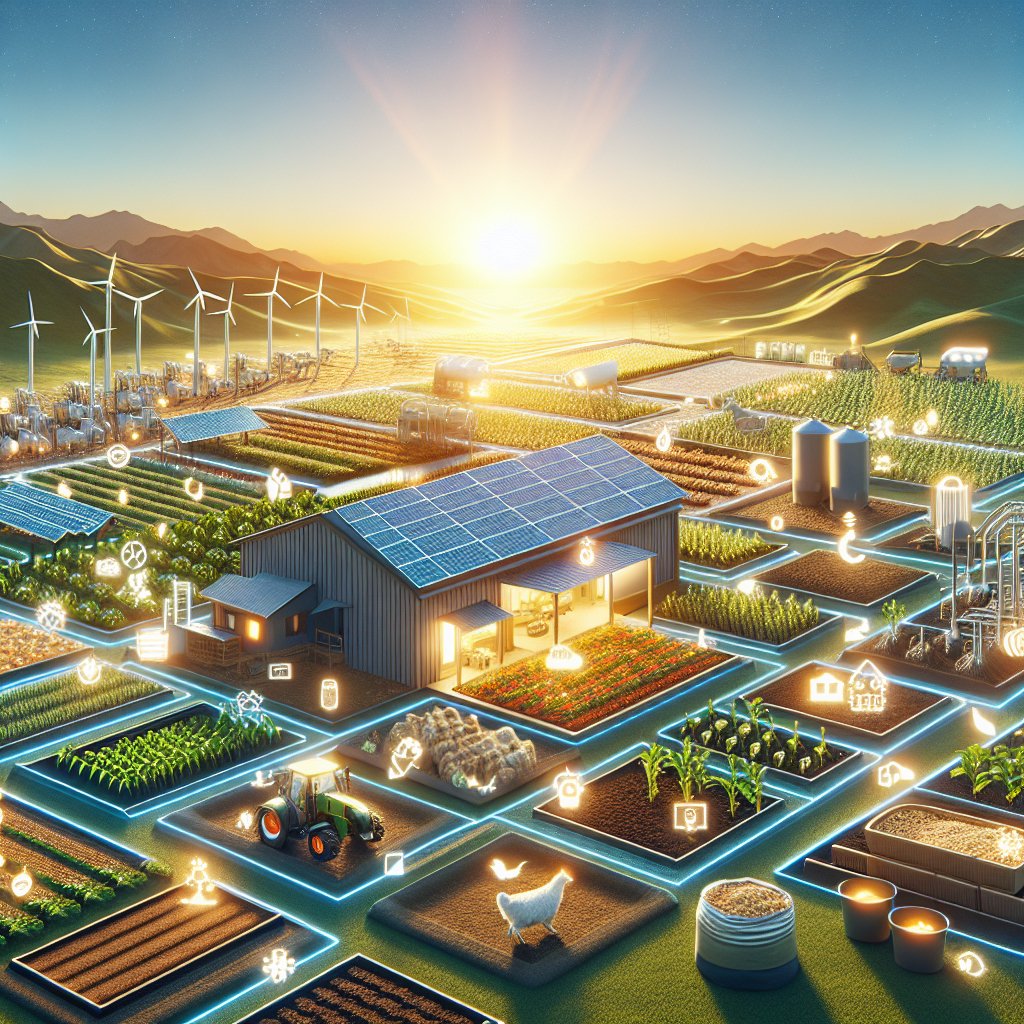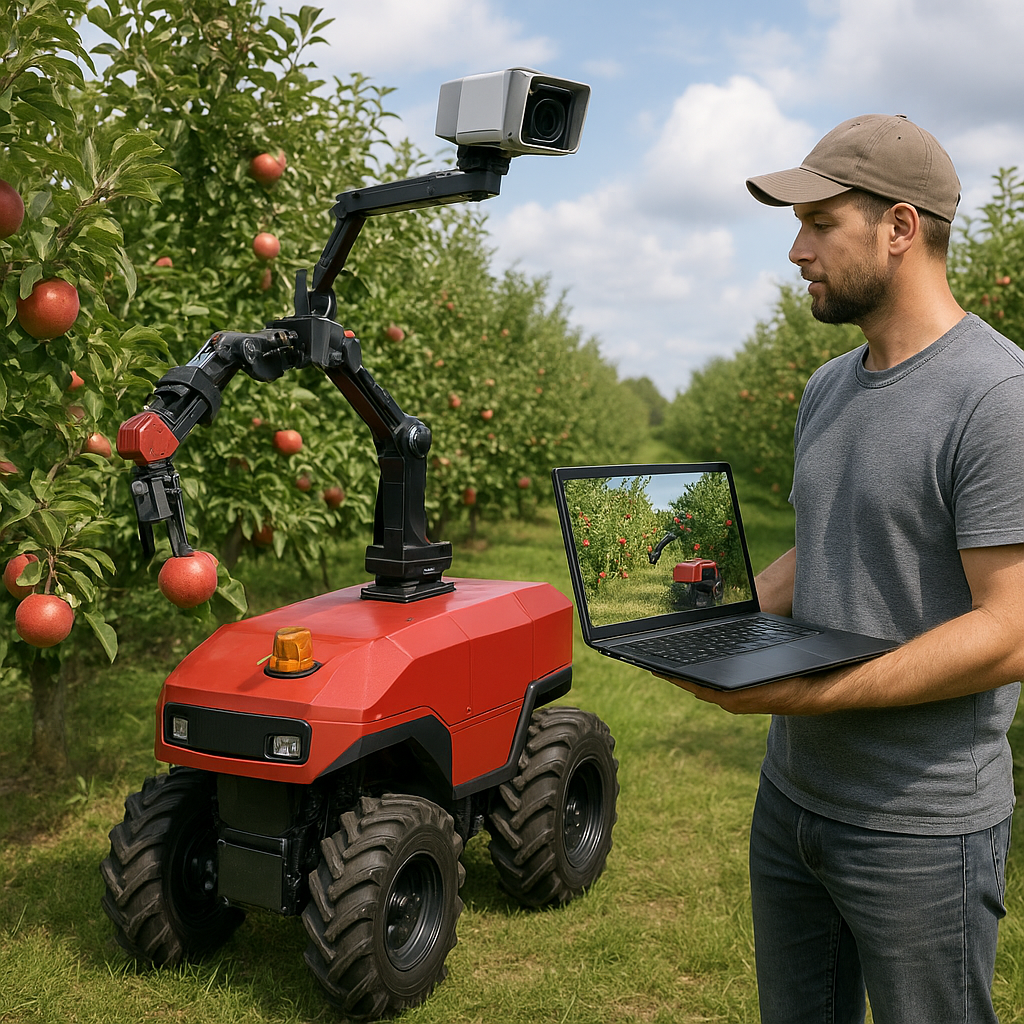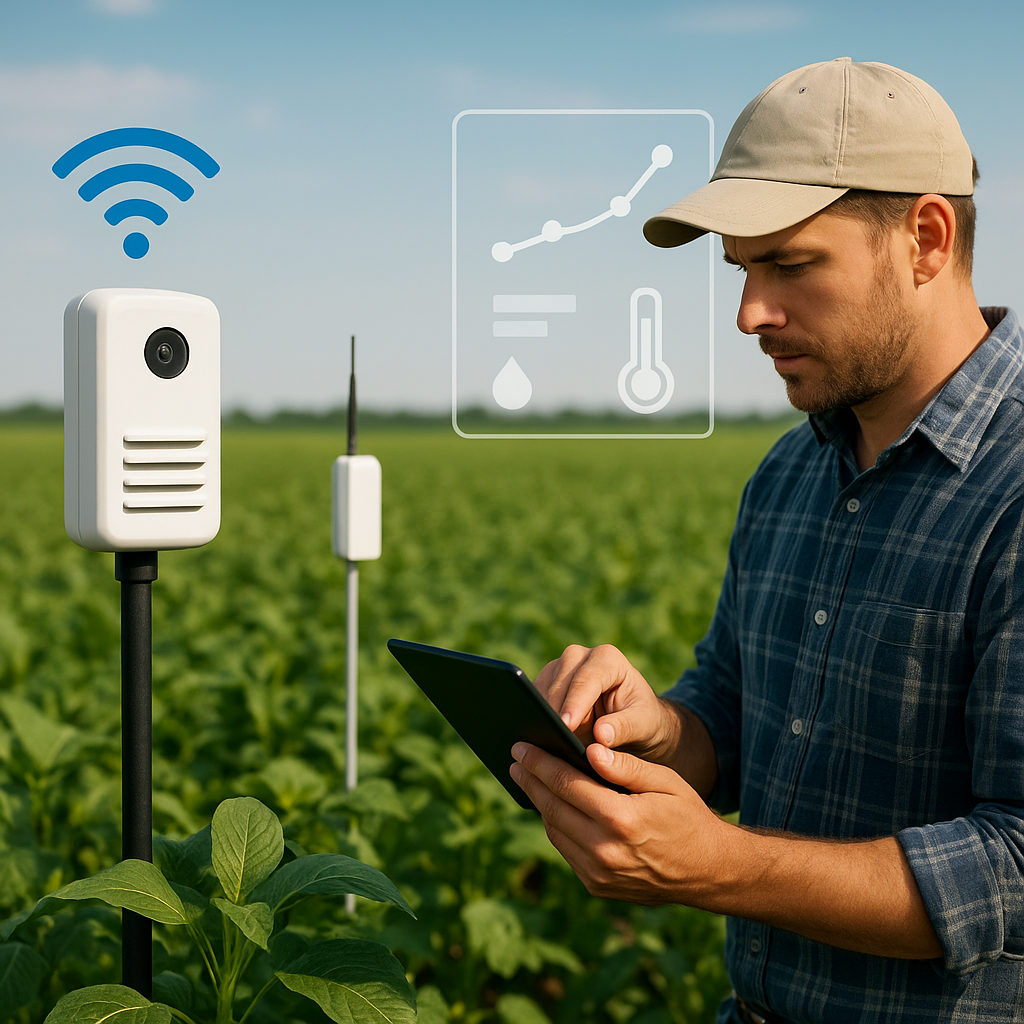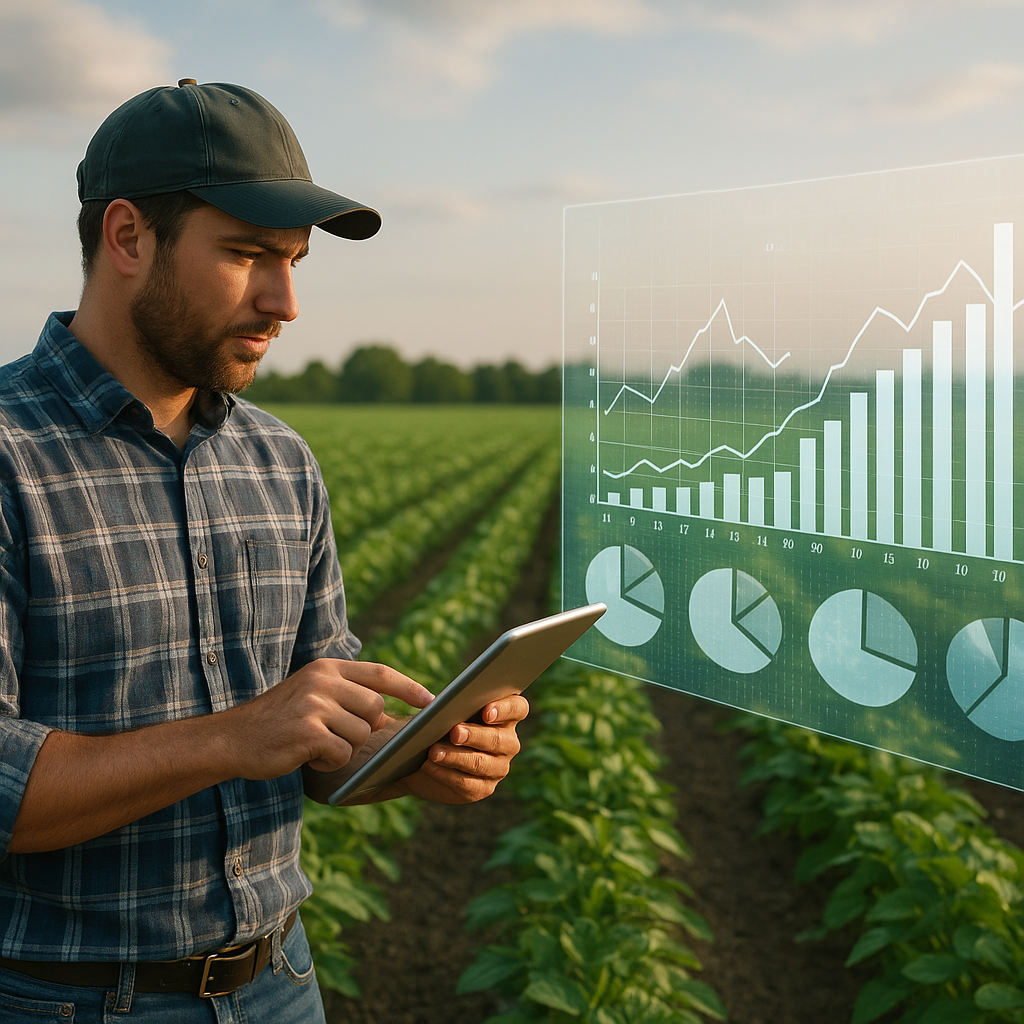Zero-waste agriculture is an innovative approach that aims to minimize waste and maximize efficiency in farming practices. This method not only helps in reducing the environmental impact of agriculture but also enhances the sustainability and profitability of farms. By adopting zero-waste techniques, farmers can contribute to a healthier planet while ensuring the long-term viability of their operations.
Understanding Zero-Waste Agriculture
Zero-waste agriculture is a holistic approach that integrates various sustainable practices to reduce waste at every stage of the farming process. The concept is rooted in the principles of circular economy, where resources are reused, recycled, and regenerated to create a closed-loop system. This approach contrasts sharply with traditional linear models of agriculture, which often result in significant waste and environmental degradation.
Principles of Zero-Waste Agriculture
The core principles of zero-waste agriculture include:
- Resource Efficiency: Utilizing resources such as water, energy, and raw materials in the most efficient manner to minimize waste.
- Recycling and Reuse: Implementing systems to recycle and reuse agricultural by-products and waste materials.
- Regenerative Practices: Adopting farming techniques that restore and enhance soil health, biodiversity, and ecosystem services.
- Waste Reduction: Identifying and eliminating sources of waste throughout the farming process.
Benefits of Zero-Waste Agriculture
Adopting zero-waste agriculture offers numerous benefits, including:
- Environmental Sustainability: Reducing waste and pollution helps protect natural resources and ecosystems.
- Economic Efficiency: Efficient use of resources and waste reduction can lower production costs and increase profitability.
- Improved Soil Health: Regenerative practices enhance soil fertility and structure, leading to better crop yields.
- Enhanced Biodiversity: Sustainable farming practices support diverse plant and animal life, contributing to a balanced ecosystem.
Techniques for Reducing Farm Waste
Implementing zero-waste agriculture involves a variety of techniques and practices designed to minimize waste and promote sustainability. Here are some key strategies:
Composting
Composting is a natural process that converts organic waste materials, such as crop residues and animal manure, into nutrient-rich compost. This compost can be used to improve soil fertility and structure, reducing the need for chemical fertilizers. By composting organic waste, farmers can recycle valuable nutrients and reduce the volume of waste sent to landfills.
Crop Rotation and Diversification
Crop rotation and diversification are essential practices in zero-waste agriculture. Rotating crops helps break pest and disease cycles, reducing the need for chemical pesticides. Diversifying crops also enhances soil health by promoting a variety of root structures and nutrient uptake patterns. These practices contribute to a more resilient and sustainable farming system.
Integrated Pest Management (IPM)
Integrated Pest Management (IPM) is a holistic approach to pest control that combines biological, cultural, mechanical, and chemical methods. By using a combination of strategies, farmers can effectively manage pests while minimizing the use of harmful chemicals. IPM promotes the use of natural predators, crop rotation, and other sustainable practices to keep pest populations in check.
Water Conservation Techniques
Efficient water use is a critical component of zero-waste agriculture. Techniques such as drip irrigation, rainwater harvesting, and soil moisture monitoring can help farmers reduce water waste and improve crop yields. By conserving water, farmers can protect this valuable resource and reduce their environmental footprint.
Agroforestry
Agroforestry is the practice of integrating trees and shrubs into agricultural landscapes. This approach offers numerous benefits, including improved soil health, enhanced biodiversity, and increased carbon sequestration. Trees and shrubs can also provide shade, windbreaks, and habitat for beneficial wildlife, contributing to a more sustainable farming system.
Precision Agriculture
Precision agriculture involves the use of advanced technologies, such as GPS, sensors, and data analytics, to optimize farming practices. By collecting and analyzing data on soil conditions, crop health, and weather patterns, farmers can make informed decisions that reduce waste and improve efficiency. Precision agriculture helps farmers apply inputs, such as water and fertilizers, more accurately, reducing waste and enhancing productivity.
Case Studies of Zero-Waste Agriculture
Several farms around the world have successfully implemented zero-waste agriculture practices, demonstrating the potential of this approach to transform the agricultural industry. Here are a few notable examples:
Case Study 1: Polyface Farm, USA
Polyface Farm, located in Virginia, USA, is a pioneer in sustainable and zero-waste agriculture. The farm employs a variety of regenerative practices, including rotational grazing, composting, and agroforestry. By integrating livestock and crop production, Polyface Farm creates a closed-loop system where waste from one process becomes a resource for another. This approach has resulted in improved soil health, increased biodiversity, and enhanced farm profitability.
Case Study 2: Sekem, Egypt
Sekem is an Egyptian agricultural initiative that focuses on biodynamic farming and zero-waste practices. The farm uses composting, crop rotation, and integrated pest management to reduce waste and promote sustainability. Sekem also emphasizes the importance of community development and education, providing training and support to local farmers. The initiative has successfully transformed desert land into fertile agricultural fields, demonstrating the potential of zero-waste agriculture in challenging environments.
Case Study 3: Navdanya, India
Navdanya is an Indian organization that promotes organic farming and seed conservation. The organization works with smallholder farmers to implement zero-waste practices, such as composting, crop diversification, and water conservation. Navdanya’s efforts have led to increased soil fertility, improved crop yields, and enhanced food security for local communities. The organization’s work highlights the importance of traditional knowledge and community-based approaches in achieving zero-waste agriculture.
Challenges and Future Directions
While zero-waste agriculture offers numerous benefits, there are also challenges to its widespread adoption. These challenges include:
- Initial Investment: Implementing zero-waste practices often requires an initial investment in new technologies and infrastructure, which can be a barrier for small-scale farmers.
- Knowledge and Training: Farmers need access to education and training on sustainable practices and zero-waste techniques. Extension services and support networks are essential for successful implementation.
- Market Access: Farmers practicing zero-waste agriculture may face challenges in accessing markets and receiving fair prices for their products. Certification and labeling schemes can help address this issue.
- Policy Support: Government policies and incentives play a crucial role in promoting zero-waste agriculture. Supportive policies can encourage the adoption of sustainable practices and provide financial assistance to farmers.
Despite these challenges, the future of zero-waste agriculture looks promising. Advances in technology, increased awareness of environmental issues, and growing consumer demand for sustainable products are driving the adoption of zero-waste practices. By continuing to innovate and collaborate, farmers, researchers, and policymakers can work together to create a more sustainable and resilient agricultural system.
Conclusion
Zero-waste agriculture represents a transformative approach to farming that prioritizes sustainability, efficiency, and environmental stewardship. By adopting techniques such as composting, crop rotation, integrated pest management, and precision agriculture, farmers can reduce waste, improve soil health, and enhance biodiversity. While challenges remain, the potential benefits of zero-waste agriculture make it a compelling model for the future of farming. As more farmers embrace this approach, we can look forward to a more sustainable and prosperous agricultural industry.
